Abuja, Nigeria (CNN). Escaped Chibok girl Amina Ali Nkeki says she misses her Boko Haram fighter husband and is still thinking about him three months after escaping the militants’ camp.
Courage to flee
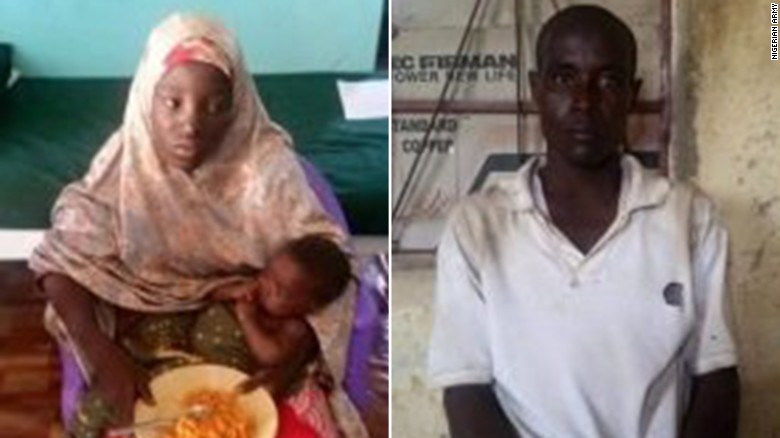
Abuja, Nigeria (CNN). Escaped Chibok girl Amina Ali Nkeki says she misses her Boko Haram fighter husband and is still thinking about him three months after escaping the militants’ camp.

![Wakil... "I have been in this, trying to bring peace between the government and Boko Haram, for the past seven years. I am known to the media, I am known to Nigeria, I have had meetings with them [the army] and told them what the boys [Boko Haram] are saying they want them to do so that this ends. They should know that I am a good asset to end this problem..."](https://www.guardiannewsusa.com/wp-content/uploads/2016/08/201461512958422734_20.jpg)
The army also alleged the three people were “in possession of information” regarding the whereabouts of schoolgirls kidnapped by the group in the village of Chibok, Borno state, in April 2014.
“How can they declare me wanted when they know me very well and they know my house? Wanted for what? If they think I have information on the Chibok girls, why did they not come and ask me? Now that they declared me wanted, did any information on the Chibok girls come out?” Wakil told IBTimes UK during a phone conversation from the federal capital of Abuja.
Wakil is known to locals in north-eastern Nigeria – the epicentre of Boko Haram’s insurgency – as “Mama Boko Haram” due to her connection with the group.
She advocates for dialogue rather than the use of military force to defeat the insurgents and was appointed by the country’s previous president, Goodluck Jonathan, as part of a team to trace the 300 Chibok girls after the abduction.
Wakil was also part of a Boko Haram Amnesty Committee, established in 2013. The year before, she and her husband had been nominated by a Boko Haram “representative” to negotiate a peace deal on behalf of the group.
“I have been in this, trying to bring peace between the government and Boko Haram, for the past seven years. I am known to the media, I am known to Nigeria, I have had meetings with them [the army] and told them what the boys [Boko Haram] are saying they want them to do so that this ends. They should know that I am a good asset to end this problem,” Wakil said.
“The boys told me that the girls are alive and I believe them, the boys don’t lie. These boys are our kids from the north-east. I know them, we all grew up there, I know many of them who started this,” she continued. “But the army believes they can do things by themselves, by bombing people, but this is not the right way. All I want is peace in my country. they should meet us instead of declaring us wanted.”
Activist and peace ambassador Ahmed Umar Bolori, who was approached by Boko Haram in a failed recruitment attempt, believes the army is trying to distort attention from the latest Chibok video.
“In the video, one of the girls said the army had killed many of their fellows. So the army now wants to clear its name and that’s why they are trying to frame us and divert international attention from the problem,” he told IBTimes UK.
Bolori alleged that the military offensive against the insurgents has resulted in the death of innocent civilians who are being held hostage by the group.
“Bombs cannot differentiate between insurgents and innocent people. If the army and Boko Haram really want to fight, let them go and fight, but this cannot be at the expense of innocent people. This is what we have been calling for – we had several meetings with the army but at the end it didn’t work because they army showed very little interest,” Bolori said.
He added he did not know the whereabouts of the Chibok girls and Boko Haram.
“I tried to link Mama Boko Haram with the current army administration and the army should listen to us. All we have been asking for is peace. It is not just about the Chibok girls, but all of the people who have been abducted and the hundreds of thousands of people displaced in IDP camps, with no food,” he continued.
Salkida has not responded to a request for comments. On his blog, the journalist, who is not based in Nigeria, said he planned to fly to Abuja and “avail myself to the army authorities”.
The Nigerian army and the spokesperson for President Muhammadu Buhari have not responded to a request for comments on the claims. Colonel Rabe Abubakar, spokesperson for the country’s ministry of defence, declined to comment on the claims against the army.
However, he told IBTimes UK the fight against Boko Haram was successful. “We are investigating on the video and the allegations made in the video. In the meantime, the operations against Boko Haram have been very successful, we are making progress and we will not relent,” he said.
Following the emergence of the video, Nigeria’s information minister Lai Mohammed said the government was “on top of the situation”.
♦ Culled from the International Business Times
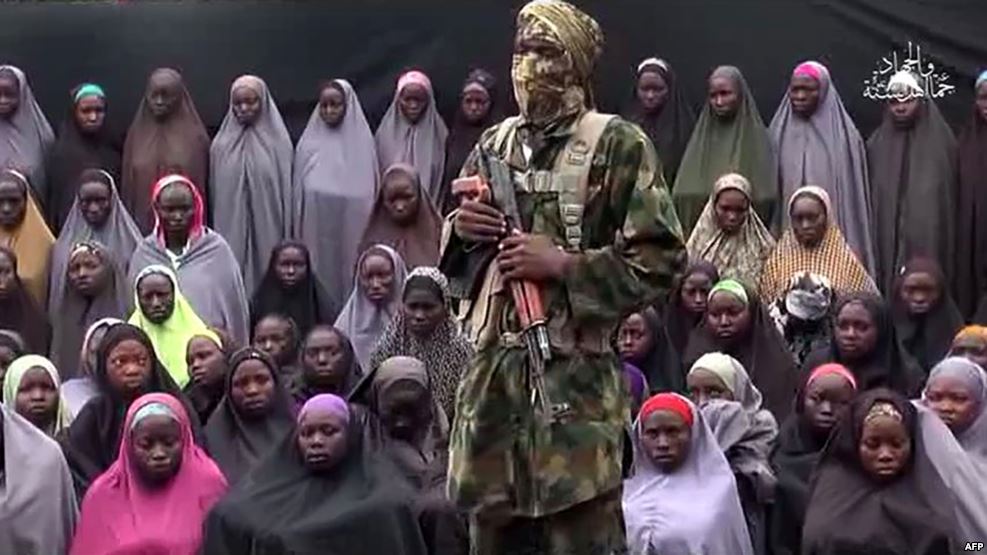
ABUJA — Nigeria’s government says it is reaching out to Boko Haram after a new video surfaced online Sunday showing as many as 50 of the Chibok schoolgirls kidnapped in 2014. The militant group says several girls have died, and they are demanding a prisoner swap for the rest.
The 11-minute video, posted on YouTube early Sunday, shows a masked man wearing military camouflage with dozens of weary-looking young women wearing headscarves, sitting and standing behind him.
In Hausa, the man in the video calls for the Nigerian government to “release the people that they are holding in Abuja, Lagos and Maiduguri.”
It is a demand that Boko Haram has made before; activists say for the sake of the Chibok girls it is time for the Nigerian government to negotiate.
The man in the video holds up a microphone to one of the young women to ask where she is from.
VOA spoke to the girl’s mother, Esther Yakubu, who through tears said this is her daughter, Dorcas, though in the video the girl answers with another name given to her by her captors. Dorcas was 15 years old in April 2014 when she was taken with nearly 300 other girls from a secondary school in the town of Chibok in northeastern Nigeria.
Dorcas echoes Boko Haram’s demand to release its members in exchange for her freedom and that of her fellow abductees.
Olatunji Olanrewaju, one of the leaders in the Bring Back Our Girls group, which started in the Nigerian capital of Abuja before spreading around the world via social media, called the video “blackmail,” but says it also creates a moment for dialogue.
“The fact that they are still alive means that we should open a channel of negotiation with them,” Olanrewaju told VOA. “If we get the girls out of the way, maybe the government can go all out after them. We are not opposed to negotiations because we’re seeing negotiations all over the world.”
About 218 of the 276 girls kidnapped from a remote school in northeastern Nigeria remain missing despite more than two years of efforts by the Nigerian government to find them, and worldwide outrage at their abduction.
Through last year, the Nigerian military announced the rescue of hundreds of people who had been kidnapped by Boko Haram, but despite occasional reports to the contrary, the Chibok girls were not among them. For the parents of the missing Chibok girls, this video brings mixed emotions of sadness and relief that some of the girls are still alive.
But the video ends with graphic images of bloody corpses. The man says these bodies are Chibok girls who were killed by Nigerian airstrikes.
Nigerian human rights lawyer Emmanuel Ogebe is based in Washington, where he has been lobbying U.S lawmakers to not forget the Chibok girls.
“The bigger question is Boko Haram has again showed a proof of life video, why is not the government negotiating? I think that the group that can show a proof of life video is the group that should be talked to. That is what proof of life videos are supposed to be.”
Nigerian presidential spokesman Femi Adesina confirmed to VOA Sunday the government has seen the video and has reached out to Boko Haram, but said officials are being cautious.
President Muhammadu Buhari has previously said he is open talking to Boko Haram through a credible Boko Haram leader.
The video was the latest released by embattled Boko Haram leader Abubakar Shekau, who has denied claims he has been replaced as the leader of the extremist group. Boko Haram is in the middle of a leadership crisis, which erupted in public last week after Islamic State announced Abu Musab al-Barnawi replaced Shekau.
In the past few days, the two men have posted strong statements condemning each other.
How this power struggle affects the possibility of negotiations may be just one of many challenges to bringing the Chibok girls home.
♦ Culled from the Voice Of America
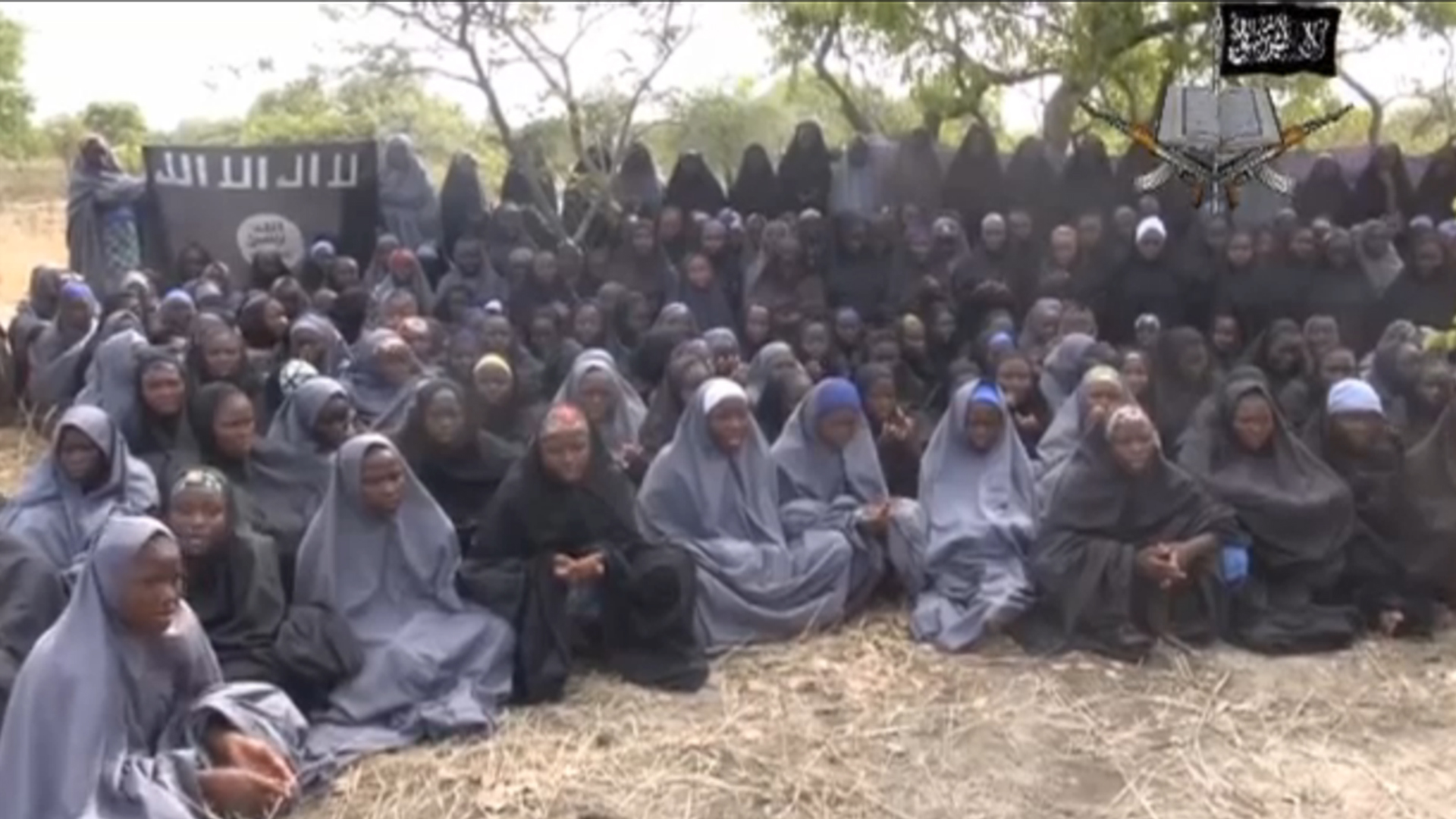
UNITED NATIONS —Two years ago Thursday, the world watched in horror as276 girls were abducted from their school in Chibok, Nigeria, by the group known as Boko Haram, a militant Islamist group that swears allegiance to the Islamic State of Iraq and Syria (ISIS).
Fifty-seven of the girls later escaped, but most have not — and the situation has only gotten worse. The kidnappings prompted a global campaign, #BringBackOurGirls, but experts say violence in the region has impeded the girls’ rescue and the world’s attention has shifted to other crises.
To show how dire the situation has become, the U.N. children’s agency, UNICEF, released a report on Tuesday showing that the number of children involved in suicide bombing has risen tenfold in the last year in the Lake Chad region, which includes Nigeria, Cameroon, Chad and Niger.
One in every five suicide bombings is perpetrated by a child. Three-quarters of them are girls as young as eight years old. They are victims, the U.N. says, of slavery and rape.
The report, “Beyond Chibok,” says 2.3 million people have been forced out of their homes in the last three years. And the other findings are equally grim.
“Boys are forced to attack their own families to demonstrate their loyalty to Boko Haram, while girls are exposed to severe abuse including sexual violence and forced marriage to fighters,” the report states. “Some are also used to carry or detonate bombs.”
Laurent Duvillier, spokesperson for UNICEF in West & Central Africa, told CBS News that the world was shocked by the 2014 abduction. “But what did not get so much attention is what happened after this: over 2,000 women and girls have been abducted since then in about four countries, not just Nigeria.”
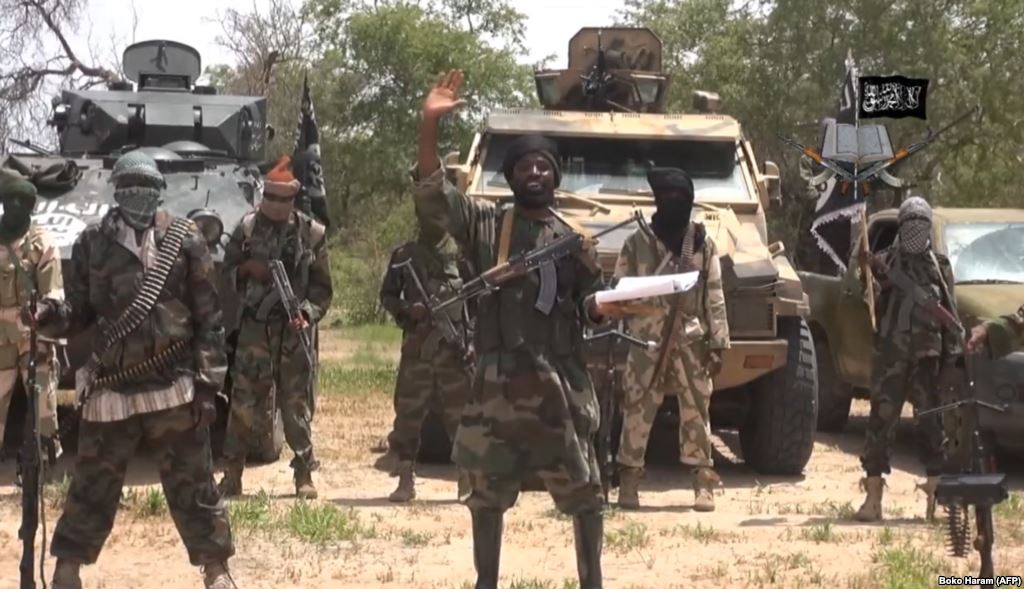
Duvillier continued, “What we see today is that the humanitarian situation has seriously deteriorated. One year ago, on the first anniversary of Chibok, there were 800,000 people displaced; today, 1.3 million children alone are displaced, an increase of 60 percent.”
Duvillier and other experts on the ground say that military forces in all four countries have make gains, liberating areas and people, but the abductions continue and, as areas are liberated, the humanitarian need is even greater.
The report details the stigma associated with children who have been freed, some ostracized, others killed, out of fear that they might turn against their communities.
There is also a chronic nutrition crisis. Toby Lanzer, the Assistant Secretary-General and Regional Humanitarian Coordination for the Sahel of Office for the Coordination of Humanitarian Affairs (OCHA), told reporters at U.N. Headquarters on Tuesday that the world should take note, because a migration crisis may follow when the “poorest of the poor” are subject to such extreme violence, abuse, the effects of climate change, and malnutrition.
“The suffering of some 30,000 people in Bama was as acute as I have seen,” Lanzer said.
Deputy U.S. State Department spokesman Mark Toner said Tuesday the U.S. is delivering over $240 million in development and humanitarian assistance to the Lake Chad region.
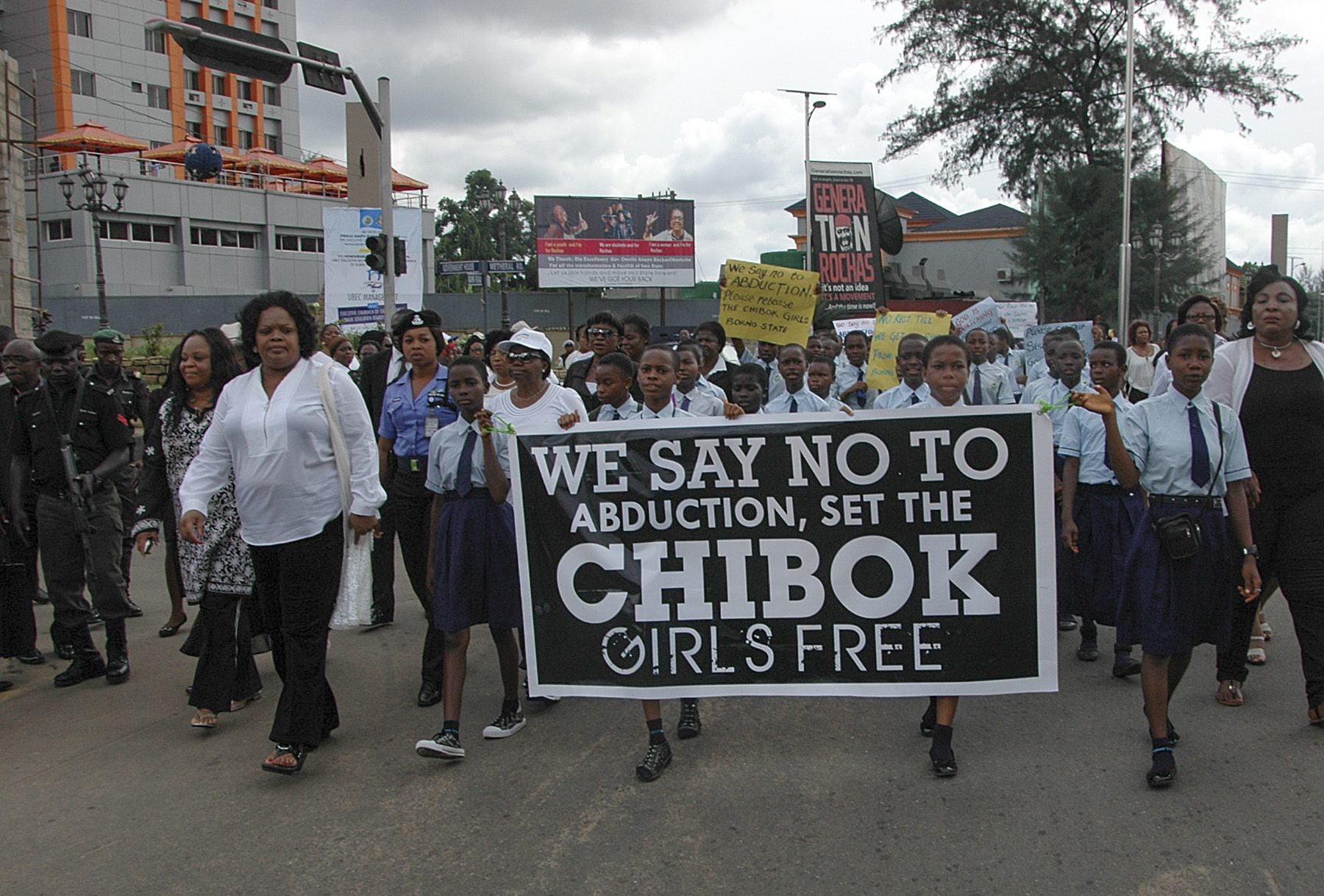
“The United States continues to assist the Nigerian government’s efforts to locate and bring home all those who have been kidnapped by Boko Haram with intelligence and advisory support,” Toner said.
“Boys and girls affected by Boko Haram violence are faced with an extremely difficult situation, but I would not qualify the situation as intractable; there are many actors, including the United Nations, engaged in trying to improve the protection of children in Nigeria and neighboring countries,” Leila Zerrougui, the Special Representative of the Secretary General for Children and Armed Conflict, told CBS News.
“The conflict’s impact on education is extremely concerning,” Zerrougi said. “Hundreds of thousands of children are missing out on their education. Recovering from personal trauma, from the trauma of conflict, is key to help the next generation build the peace they deserve.”
Copyright © 2026 | MH Magazine WordPress Theme by MH Themes